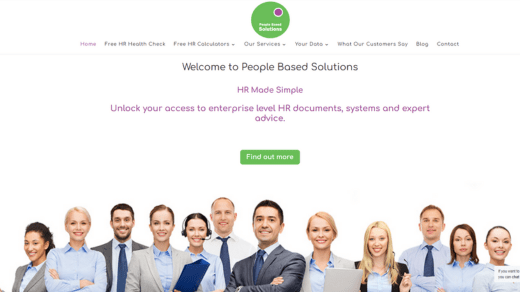
In the ever-evolving landscape of business, companies are increasingly turning to strategic solutions to enhance efficiency, reduce costs, and refocus internal resources. Human Resources (HR) outsourcing has emerged as a key strategy for organizations looking to streamline their HR functions and concentrate on core business activities. This article delves into the concept of HR outsourcing, exploring its benefits, considerations, and the transformative impact it can have on organizational success.
1. **Defining HR Outsourcing:**
HR outsourcing involves delegating specific HR functions or processes to external service providers. These functions can range from recruitment and payroll processing to employee benefits administration and compliance management. By entrusting these tasks to specialized professionals, organizations can optimize their HR operations and concentrate on strategic initiatives.
2. **Strategic Advantages of HR Outsourcing:**
a. **Cost Efficiency:**
Outsourcing HR functions often results in cost savings for organizations. External service providers can leverage economies of scale, cutting down on operational costs and providing cost-effective solutions. This allows companies to redirect financial resources to core business activities and investments.
b. **Expertise and Specialization:**
HR outsourcing firms specialize in specific HR functions, bringing a depth of expertise to the table. Whether it’s managing complex payroll processes or staying abreast of changing employment laws, these specialists possess the knowledge and experience necessary to navigate intricate HR landscapes.
c. **Focus on Core Competencies:**
By outsourcing HR functions, organizations can refocus internal resources on core competencies and strategic initiatives. This enables them to concentrate on business growth, innovation, and cultivating a competitive edge in their industry.
d. **Flexibility and Scalability:**
HR outsourcing provides flexibility in adapting to changing business needs. As organizations grow or face fluctuations in HR demands, outsourcing partners can easily scale their services up or down, ensuring that HR solutions align with the dynamic nature of the business.
e. **Access to Advanced Technology:**
HR outsourcing providers often invest in state-of-the-art technology and systems to streamline HR processes. This allows organizations to benefit from advanced tools for recruitment, payroll management, performance tracking, and other HR functions without the need for substantial internal investments.
f. **Risk Mitigation and Compliance:**
Staying compliant with ever-changing labor laws and regulations is a complex task. HR outsourcing firms specialize in compliance management, helping organizations mitigate legal risks and stay abreast of regulatory changes. This proactive approach minimizes the likelihood of legal complications.
3. **Considerations and Best Practices:**
a. **Clear Objectives and Communication:**
Before embarking on HR outsourcing, organizations should establish clear objectives and communicate expectations effectively. This ensures that both the organization and the outsourcing partner are aligned in their goals and strategies.
b. **Vendor Selection and Due Diligence:**
Choosing the right HR outsourcing partner is crucial. Conducting thorough due diligence, checking references, and evaluating the provider’s track record in delivering similar services are essential steps in the vendor selection process.
c. **Data Security and Confidentiality:**
HR outsourcing involves handling sensitive employee data. Ensuring the outsourcing partner adheres to robust data security measures and confidentiality standards is imperative. This is particularly important in industries with stringent privacy regulations.
d. **Service Level Agreements (SLAs) and Key Performance Indicators (KPIs):**
Establishing clear SLAs and KPIs is essential for measuring the performance and effectiveness of the HR outsourcing relationship. These metrics provide a framework for assessing the success of the partnership and ensuring accountability.
e. **Continuous Monitoring and Evaluation:**
HR outsourcing is an evolving process. Continuous monitoring and periodic evaluations help organizations assess the impact of outsourcing on their HR functions. This allows for adjustments, improvements, and the identification of additional outsourcing opportunities.
4. **Common HR Functions Outsourced:**
a. **Payroll Processing:**
Outsourcing payroll functions, including salary disbursement, tax calculations, and compliance management, is a common practice to ensure accuracy and efficiency.
b. **Recruitment Process Outsourcing (RPO):**
RPO involves outsourcing recruitment activities, from candidate sourcing and screening to interview coordination. RPO providers leverage their expertise to streamline the hiring process.
c. **Benefits Administration:**
Managing employee benefits, such as health insurance, retirement plans, and leave policies, is often outsourced to ensure compliance and efficient administration.
d. **Employee Training and Development:**
Outsourcing training programs and development initiatives allows organizations to leverage external expertise in delivering effective and tailored learning experiences.
Conclusion:
HR outsourcing has evolved into a strategic tool for organizations seeking to optimize their HR functions, enhance efficiency, and focus on core business activities. The benefits of cost efficiency, expertise access, flexibility, and risk mitigation make HR outsourcing an attractive proposition for businesses of all sizes. By carefully considering key factors, selecting the right outsourcing partner, and continuously monitoring performance, organizations can harness the transformative power of HR outsourcing to drive sustainable success in today’s competitive business landscape. Check out People Based Hr for more.






